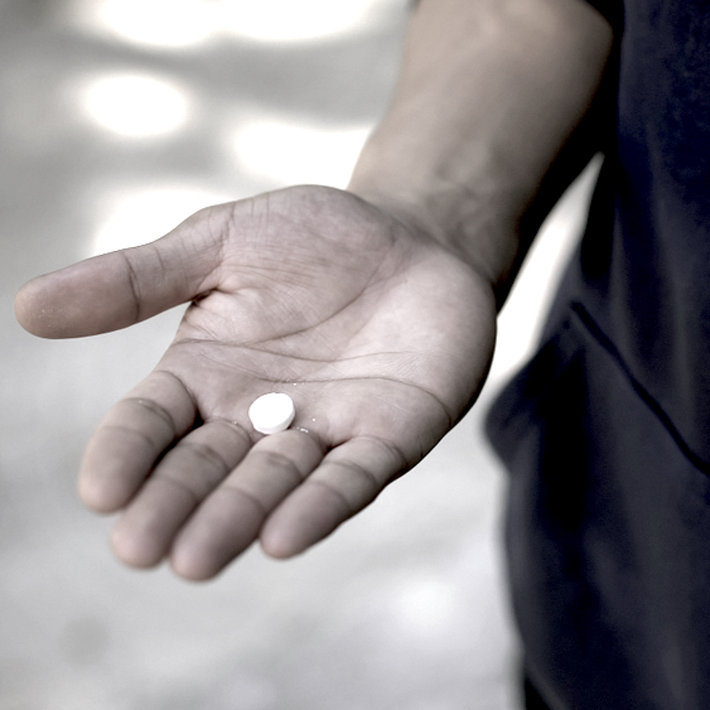Parental Involvement Tied to Drop in Teen Drug Use

The Centers for Disease Control and Prevention recently released a comprehensive report outlining current health metrics among American teens. One of the many critical findings outlined in the report was how impactful positive parental involvement in teens’ lives is for determining key health outcomes.
What the Findings Show
Despite a concerning rise in mental health crises among American youths, CDC research data found that overall substance abuse rates declined from 2021 to 2022. The report highlighted parental involvement in teens’ lives as critical to preventing substance abuse.
Thankfully, parents seem more involved in their teens’ lives now. The report highlighted 86% of teens surveyed said their parents kept tabs on their activities, whereabouts, and who they spent time with. As a result, those teens whose parents were more involved in their lives had better overall health outcomes, including fewer experiences of violence and fewer mental health challenges. Such teens were also less likely to experiment with drugs and alcohol.
The researchers also noted the fine balance that parents must walk to be involved in their teens’ lives. Enough to care, but not so much as to seem controlling. “Being an informed parent is good. Being a control freak who controls and monitors everything to where the kid has no privacy is looking for trouble,” said Dr. Neil Bernstein, a clinical psychologist in Washington, D.C. “Parents have to strike a balance between being, what the kids call a ‘chill parent,’ and a control freak. A solid relationship is based on mutual communication and understanding. Kids have to be safe sharing things,” he said. According to the data, when parents can find the perfect balance of involvement in their teens’ lives, their children benefit from it.
Talking to Teens About Drugs

How does a parent talk to their teen about drugs? How does a parent show interest in their teen and engage them in conversation without seeming nosy or controlling? Multiple public health initiatives highlight the importance of communicating with children, teens, and young adults about drugs, and the recent CDC data seems to prove that such conversations help teens abstain from mind-altering substances.
Following are five tips for parents to have successful conversations with their kids about drugs:
1. Share quality time in-person with kids. One study found that households that share meals are less likely to experience drug use. But it doesn’t just have to be shared meals. Quality time with kids can occur while on a walk, in the car, or simply while spending time at home.
2. Parents should ask specific questions about teens’ day-to-day life to convey interest and curiosity without making it seem like an interrogation. One resource encourages questions like, “Who’d you have lunch with today?”, “How was soccer practice?”, and “What’s planned for play rehearsal tonight?”
3. Parents should also meet their teen children’s peers. When friends are over visiting, parents should pop in, say hello, introduce themselves, get the names of their child’s peers, and check in periodically.
4. Teens say their parents are the most important influence in their lives when it comes to mind-altering substances. Hence, parents who find opportunities for conversations about substances with their kids can make a big difference. Parents should calmly and openly discuss the negative effects of substances, clearly communicate that they do not want their children using substances, and also speak openly about the short-term and long-term effects drugs and alcohol can have on teens’ mental and physical health, safety, and ability to make good decisions.
5. When discussing drugs and alcohol with teens, parents should keep an open mind and ask open-ended questions and make the conversation a conversation (and not a lecture). Parents should also listen more than they speak and allow for a certain amount of vulnerability and openness with their children.
One resource lists the following as sample methods for getting a teen son or daughter to have an honest conversation with their parent about drugs.
- “When you don’t come home on time, I worry that something terrible has happened. What I need is for you to call me as soon as you know you’re going to be late so that I know you’re okay.”
- “I feel like you can’t hear what I have to say when you’re so mad. Then I get frustrated. I need to talk about this later when we’re both able to listen.”
- “Because I love you and I want to keep you safe, I worry about you going to the concert. I need to know that you will obey our rules about not drinking or using drugs.”
The goal should always be to create a safe place for teen sons and daughters to speak openly about drugs and alcohol, what they’ve heard about such substances, what their peers are saying or doing regarding such substances, and their personal feelings about them. Creating a safe place allows parents to inform their children about the harmful effects of drugs and alcohol while providing them with tools to overcome peer pressure.
Treatment Centers Can Help Overcome Addiction
If a teen son or daughter falls prey to drug abuse, they will need professional help if they cannot stop using such substances on their own. Residential addiction treatment centers can provide young people who are addicted to drugs with the tools, resources, environment, stability, healthy coping strategies, and life skills they need to overcome substance abuse and live life without relying on mind-altering substances.
Sources Cited:
- CDC. “Overview and Methods for the Youth Risk Behavior Surveillance System—United States, 2021.” Centers for Disease Control and Prevention, 2023. cdc.gov
- USNews. “Many American Teens Are in Mental Health Crisis: Report.” U.S. News, 2023. usnews.com
- HHP. “Teens and drugs: 5 tips for talking with your kids.” Harvard Health Publishing, 2018. health.harvard.edu
- NIH. “Do family dinners reduce the risk for early adolescent substance use? A propensity score analysis.” National Institutes of Health, 2013. pubmed.ncbi.nlm.nih.gov
- PEA. “Connecting With Your Teenager to Prevent Drug Use.” Partnership to End Addiction, 2023. drugfree.org


 ®
®